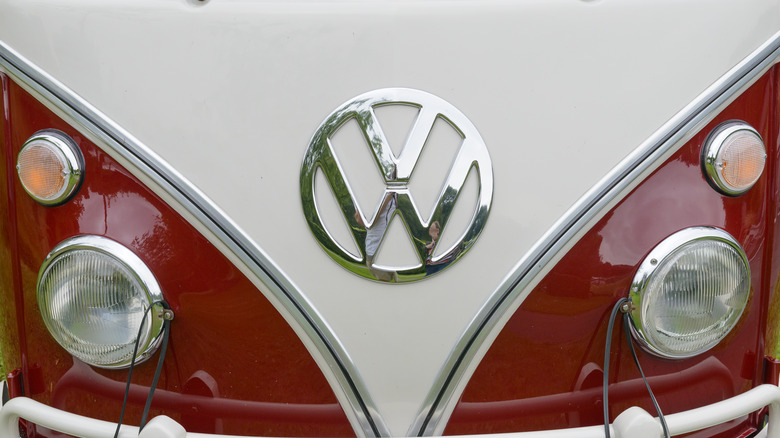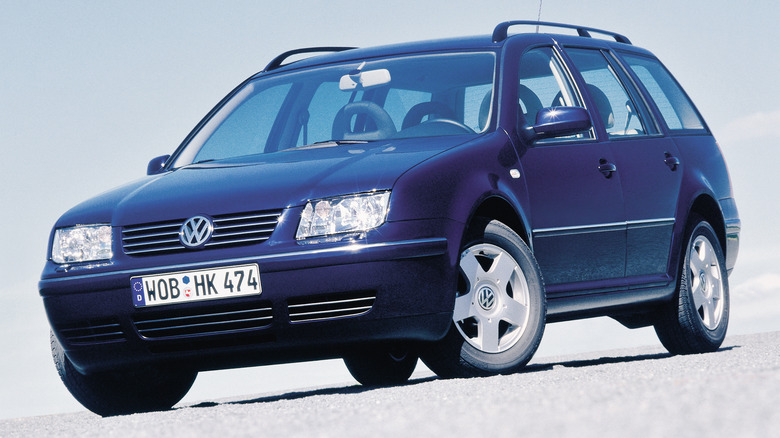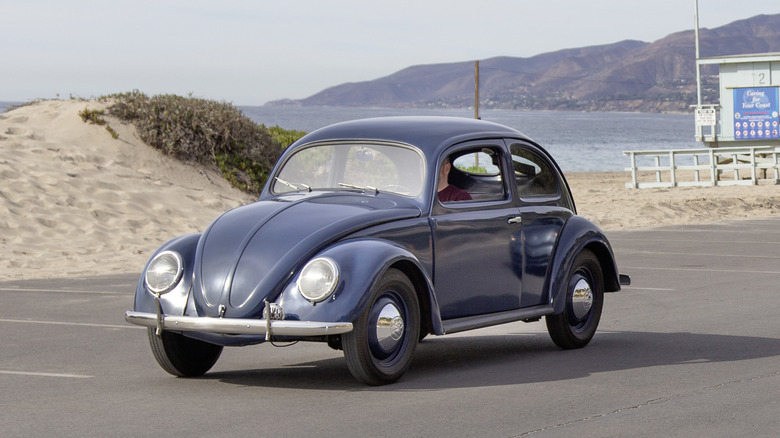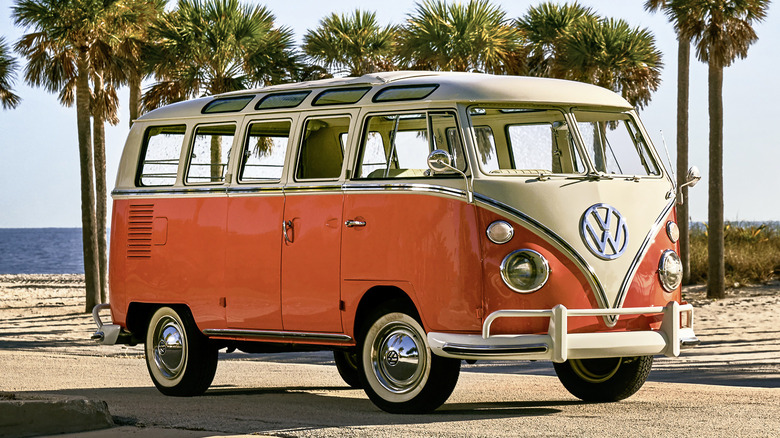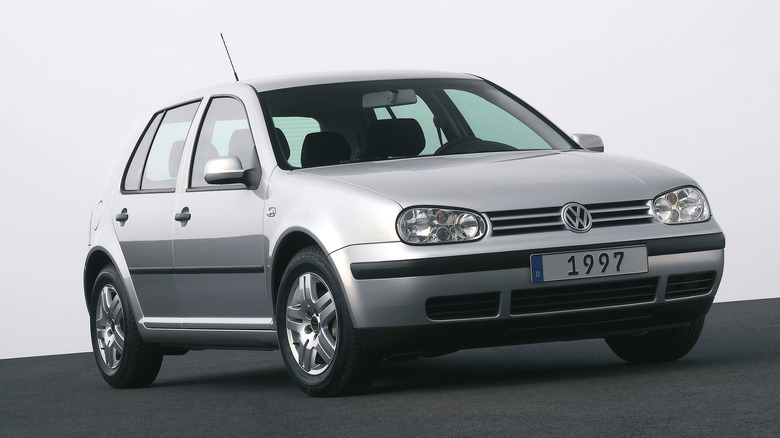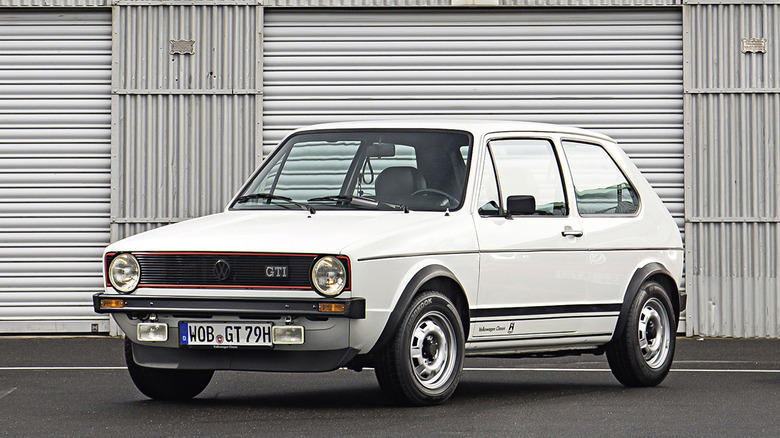5 Classic Volkswagens That Will Run Forever
Volkswagens, despite the brand's German heritage, are icons in the United States and everything from a humble Jetta sedan to the fastest Golf R has a dedicated fanbase Stateside. As with most cars from Europe, a lot of the American public might see VWs as unreliable and something that's hard to find parts for, not to mention someone to work on them outside the dealership. That may be the case for a rare Volkswagen Corrado or a tuned Golf R32 with some extra go-fast parts.
But in reality, there are plenty of Volkswagens around that are reliable daily drivers that might even give cars powered by Chevy Small Blocks or Ford's Panther Platform a run for their money. While the chances of a car literally running forever are slim to none, as eventually the sun will collapse on itself and the solar system will cease to exist, there are a few cars within VW's extensive lineup that have a fairly decent chance of standing up to the test of time and hanging in there for years to come. Granted, without proper maintenance and a decent amount of care, no car will run for very long.
Mk IV Jetta TDI
When one thinks of exciting cars, Volkswagen Jetta (also called the "Bora" overseas) likely isn't toward the top of the list, much less the diesel TDI variant that was on sale in the United States. The TDI Jettas were not fast according to any contemporary definition of the word, with early 2000s models generating only 90 horsepower from their diesel powertrain. But the car was not made to be fast; it was made for efficiency, and it's not unusual to see more than 40 miles a gallon from a TDI.
Reliability is another plus for the Jetta. With regular maintenance and careful driving, it's not outside the realm of possibility to go several hundred thousand miles before the body of the car dissolves into rust around the engine. There are several TDI Jettas that have reached 400,000 miles with little to no hassle. While 200,000 miles on the clock would likely get the owner to start thinking of getting a different car, that's just the break-in period for some die-hard VW diesel fans.
The Beetle
The VW Beetle is one of the most recognizable cars to ever exist. While the model has its origins dating back to Nazi Germany and was the brainchild of Ferdinand Porsche, the Beetle most people are familiar with comes from the 1960s and 1970s. The kind of Beetle used by a stereotypical hippie on their way to Woodstock was incredibly reliable for the time, mostly due to its air-cooled engine. In most iterations, it was a compact horizontally opposed four-cylinder engine that made sub-50 horsepower.
It was air-cooled, so there was no radiator or active cooling to worry about, given everything was properly in working order, and the car itself wasn't very complex at all. The interior of most Beetles from that time period was little more than two bench seats and a steering wheel. The Beetle is so reliable because there's very little to go wrong in the first place — after all, parts add complexity and therefore a greater risk of breaking down.
The Bus
The VW Bug's larger sibling, the Bus, or Transporter, deserves to star in any conversation about reliable Volkswagens. For much of the same reasons the Beetle runs the distance, the Bus excels. The air-cooled engine is a tried and true long-distance performer no matter the shape of the sheet metal that surrounds it. Although to the VW fan, the Bus has the distinct advantage of space.
VW's venerable microbus has already proved itself to be one of the best possible candidates for a road trip vehicle, no matter the powerplant. An enterprising wrencher can drop in whatever engine they want to make the van a little quicker, but if you aren't concerned with speed, the bone stock air-cooled option might be the best around when reliability is at the top of the concerns list. Given the fact that the engine has been on America's shores for more than half a century, it's safe to say that parts availability won't be a huge concern.
Mk IV Golf TDI
If the Jetta doesn't quite fit your sense of style when it comes to a sensible diesel-powered commuter, then the MKIV Golf TDI might be the hatchback for you. If you pick the same era as the aforementioned Jetta, it has essentially the same drivetrain. You get all of the fuel efficiency and reliability of a low-revving, low-maintenance diesel engine with all of the capabilities of a VW Golf, one of the most popular cars VW ever made.
Enthusiast forums sing the praise of the TDI Golf all day long over several threads. But with every "good" car comes a caveat. In this case, the caveat happens to pertain to car ownership as a whole. The car is only as reliable as you are. If you want to completely ignore maintenance, then parts on the car will fail prematurely. A laissez-faire attitude may slide on a car like a Corolla or Honda Civic, but it can only get you so far. However, if you replace parts when they break and keep all of your fluids and belts up to date, 1.9-liter TDI motors can run for a very long time — in fact, well over 200,000 miles is not unusual.
Mk I Golf GTI
Next to only the classic Bug, the original Golf GTI might be the more recognizable VW to ever come to the United States. It showed the car-buying public that Volkswagen was capable of making more than just buses for driving to a Grateful Dead concert — it could also produce cars that were fun to drive and remarkably light. The first Golf GTI (also called the Rabbit) was unveiled in 1976. According to VW, it made 108 horsepower in its first iteration, which doesn't seem like a lot until you factor in that it weighed only 1,763 pounds.
To this day, first-generation Golf GTIs are a staple at track day events and classic car auctions across the country. It is the automotive equivalent of a cockroach because it just doesn't go away — although given its bright demeanor and cheerful front fascia, exactly no one will get angry after seeing a 40-plus-year-old Golf roll by without a care in the world. It's not unusual to see even auction-ready examples with well over 100,000 miles on the clock.
